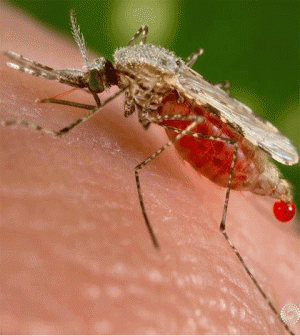- Finding Unshakable Power in a World That Wants to Pull Us ApartPosted 5 months ago
- What could a Donald Trump presidency mean for abortion rights?Posted 5 months ago
- Financial Empowerment: The Game-Changer for Women in Relationships and BeyondPosted 6 months ago
- Mental Health and Wellbeing Tips During and After PregnancyPosted 6 months ago
- Fall Renewal: Step outside your Comfort Zone & Experience Vibrant ChangePosted 7 months ago
- Women Entrepreneurs Need Support SystemsPosted 7 months ago
Malaria drug for pregnant women also combats sexually transmitted infections - research

By Kieran Guilbert | Thomson Reuters Foundation
The antimalarial drug reduces the danger of life-threatening birth problems linked to malaria and STIs
DAKAR, March 2 (Thomson Reuters Foundation) – A drug given to pregnant women to combat malaria also offers protection against sexually transmitted infections (STIs), and boosting doses of the ‘double protection’ treatment cuts the risk of infant deaths, researchers said on Thursday.
Giving pregnant women regular doses of antimalarial drugs greatly reduces the danger of life-threatening birth problems linked to the mosquito-borne disease and STIs, a study led by the London School of Hygiene & Tropical Medicine (LSHTM) said.
Many of the 880,000 stillbirths and 1.2 million newborn deaths which occur each year in sub-Saharan Africa are linked to the mother having an infection, the study found.
“Sexually transmitted and reproductive tract infections are linked to devastating birth consequences for pregnant women, including spontaneous abortion, stillbirth and premature and low birthweight,” said Matthew Chico, lead author of the report, which studied more than 1,000 pregnant women in rural Zambia.
Malaria prevention treatment using the drug sulphadoxine-pyrimethamine (SP) goes beyond ‘life-saving protection against malaria’, the LSHTM assistant professor added in a statement.
Women in the study who received two or more doses of SP antimalarial drugs during antenatal care visits were 45 percent less likely than those who received one or no doses to suffer problems at birth, such as stillbirth and low birthweight.
Among the women who did experience such issues, those who had taken two or more doses of SP compared to no or one dose were 76 percent less likely to have malaria, and 94 percent less likely to have gonorrhoea or chlamydia.
Although pregnant women in Zambia receive antimalarial drugs and testing for syphilis and HIV, screening is not routine for STIs including gonorrhoea, chlamydia and bacterial vaginosis, the study said.
Only a quarter of pregnant women in sub-Saharan Africa receive two doses of SP – well below international health targets – and the study authors called for this to be improved.
“Sulphadoxine-pyrimethamine is a cheap ‘double protection’ drug – 20 U.S. cents per dose,” said Chico. “For that bargain price, pregnant women receive broad protection against a range of infections which can lead to very serious consequences.”
(Reporting By Kieran Guilbert, Editing by Katie Nguyen. Please credit the Thomson Reuters Foundation, the charitable arm of Thomson Reuters, that covers humanitarian news, women’s rights, trafficking, property rights, climate change and resilience. Visit http://news.trust.org)






